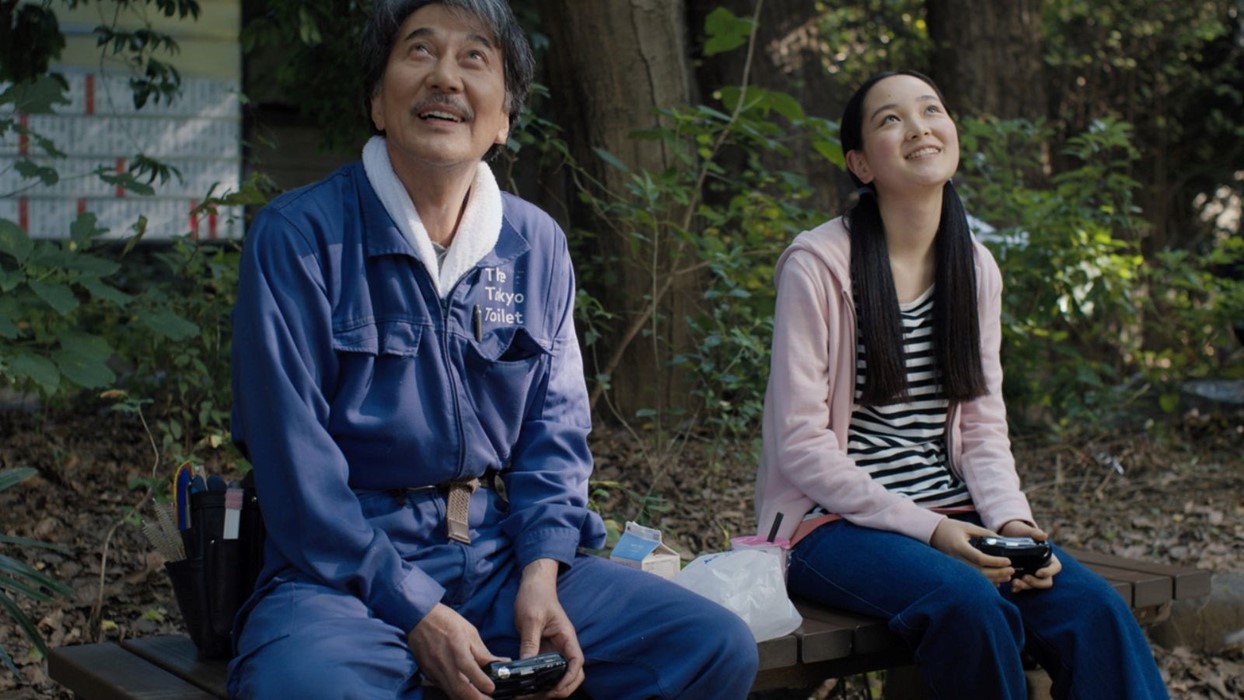From Wim Wenders’ gentle Japanese odyssey to Steve McQueen’s monumental new documentary on Nazi-occupied Amsterdam, here are five of the best films to see this month
Perfect Days
From February 23
Kōji Yakusho won best actor at Cannes for his performance as Hirayama in Perfect Days, Wim Wenders’ languid account of a Tokyo toilet cleaner with a Zen Buddhist’s eye for the poetic. His turn adds soul to what might easily seem a very ‘movie’ creation, as a near-mute manual worker who enjoys reading Faulkner and listening to Lou Reed and Patti Smith, and greets each morning with a grateful look at the sky.
Just what is he looking at up there? At first, the character seems to mirror Bruno Ganz’s angel in Wings of Desire, observing Berlin from the rooftops of the city. But Yakusho, a veteran of films by Hirokazu Kore-eda, Shohei Imamura and Kiyoshi Kurosawa, brings such depth to the role you’d be hard-pressed to call him a cypher: it’s a masterclass in fine-motor acting, his sly, secretive smile every bit as eloquent as the most finely worded script.
Wenders’ film stems from an unlikely source: it was inspired by a trip to Japan to see the Tokyo Toilet Project, a scheme inviting artists to design public restroom facilities across the city’s Shibuya district. These miniature architectural marvels provide the cinematic backdrop to Hirayama in his everyday routines, observed at close quarters by the German director, who has spent years turning a sympathetic lens on life’s itinerants and outsiders as a pioneer of the new German cinema. The character’s ability to handle seemingly any situation with grace and equanimity is shaken when his niece, Niko, turns up at his door having run away from home, and the pair bond in a brief, blissful interlude, prompting questions about what might have gone down in Hirayama’s past.
These questions go unanswered in Wenders’ film, which is more concerned with the question of how to meet the present head-on than the baggage of the past. But there’s a clue in a beautiful, extended close-up of Hirayama, something like grief to swimming up to the surface of that enigmatic, smiling face. It’s a wonder to behold.
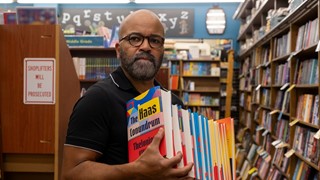
American Fiction
From February 2
On a forced leave of absence from his teaching post, peevish author Thelonious ‘Monk’ Ellison (Jeffrey Wright) goes back to Boston for some reluctant family time. Enraged by the publishing industry’s addiction to Black trauma-porn narratives, and frustrated with his own flatlining literary career, he concocts a spiteful parody under a pseudonym, Stagg R Lee. But when the inevitable six-figure offers start rolling in, Ellison must hastily assemble a ‘hood’ persona that plays into the hands of his audience. Cord Jefferson’s film debut is a booksmart comedy drawing excellent performances all round from its cast, but the mix of family melodrama and satire doesn’t always gel, and the multiple endings seem more confused than playful.
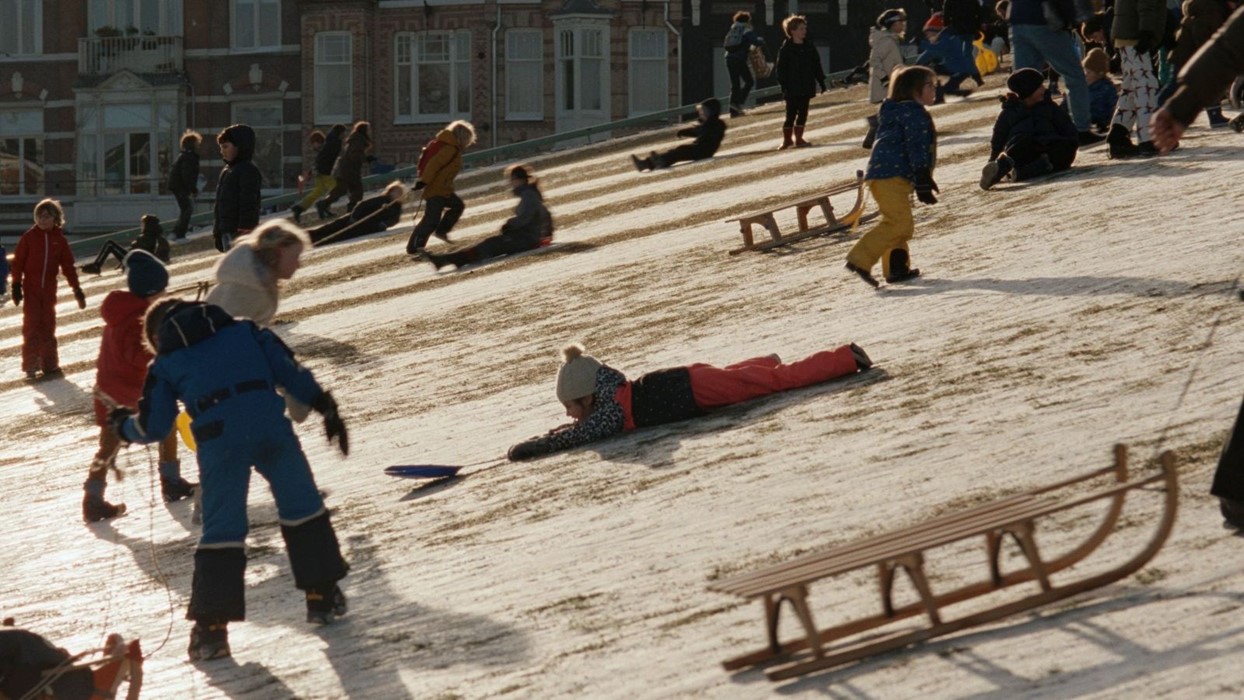
Occupied City
From February 9
Steve McQueen’s new film is a lot, in every sense of the word. Clocking in at a whopping four and a half hours, it’s a mosaic documentary adapted from a book by his wife, Bianca Stigter, narrating episodes from Nazi-occupied Amsterdam over scenes from the city’s present. This ghostly overlay of past on present creates a useful narrative frisson, McQueen juxtaposing the Nazis’ reign of terror with scenes that reflect our current fraying political consensus (lockdown parties, climate protests), and everyday moments of joy like kids sledging in the park. But at times these stories of miraculous escapes and cruel twists of fate, resistance and mass murder feel short-changed by the dry narration, depriving the film of the emotional kick any such account surely needs.
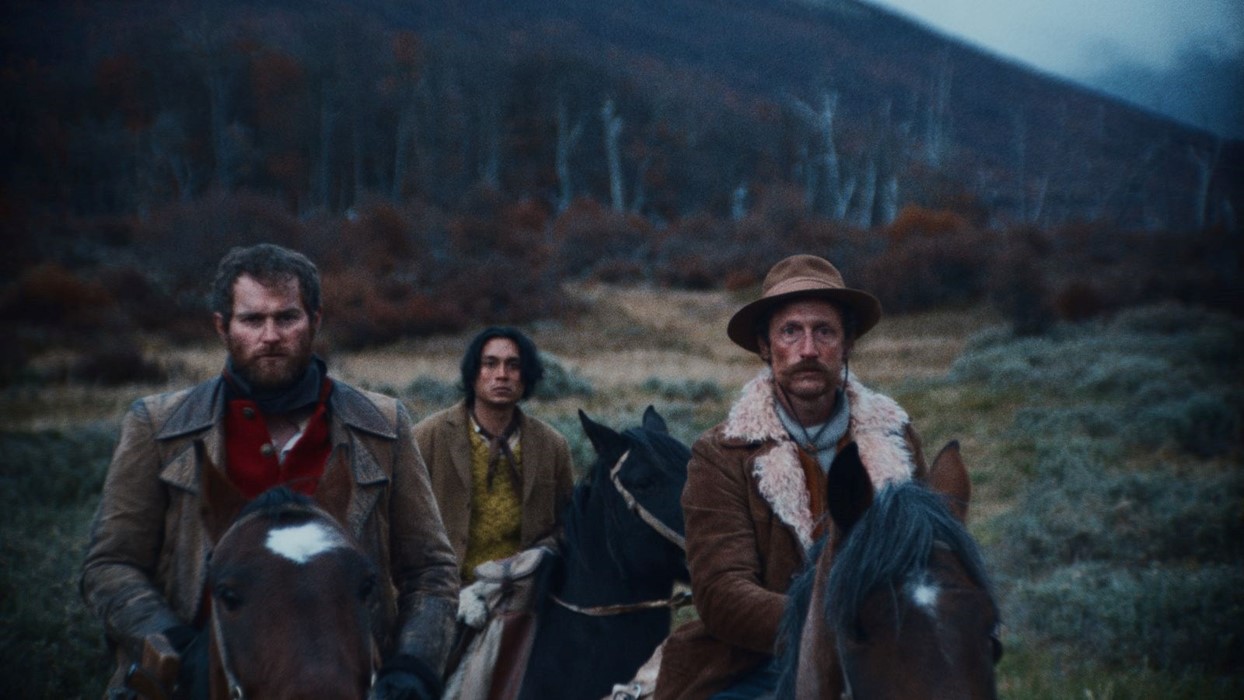
The Settlers
From February 9
A brooding, sometimes grisly western about the bloody birth pangs of modern Chile, Felipe Gálvez’s feature debut tells the story of three men tasked with finding safe passage to the Atlantic for a wealthy landowner’s sheep. But the journey soon dissolves into mayhem as two of the men embark on a murderous campaign against the region’s indigenous tribes, while a young Chilean brought along as a guide is forced to witness firsthand their brutality. Like an unholy cross between Red River and Cormac McCarthy’s Blood Meridian, Gálvez’s film thrusts its characters into a world of fog and rifle smoke, making great use of the Tierra del Fuego’s spectral, wintry landscapes before the action moves indoors for a chilling final act.
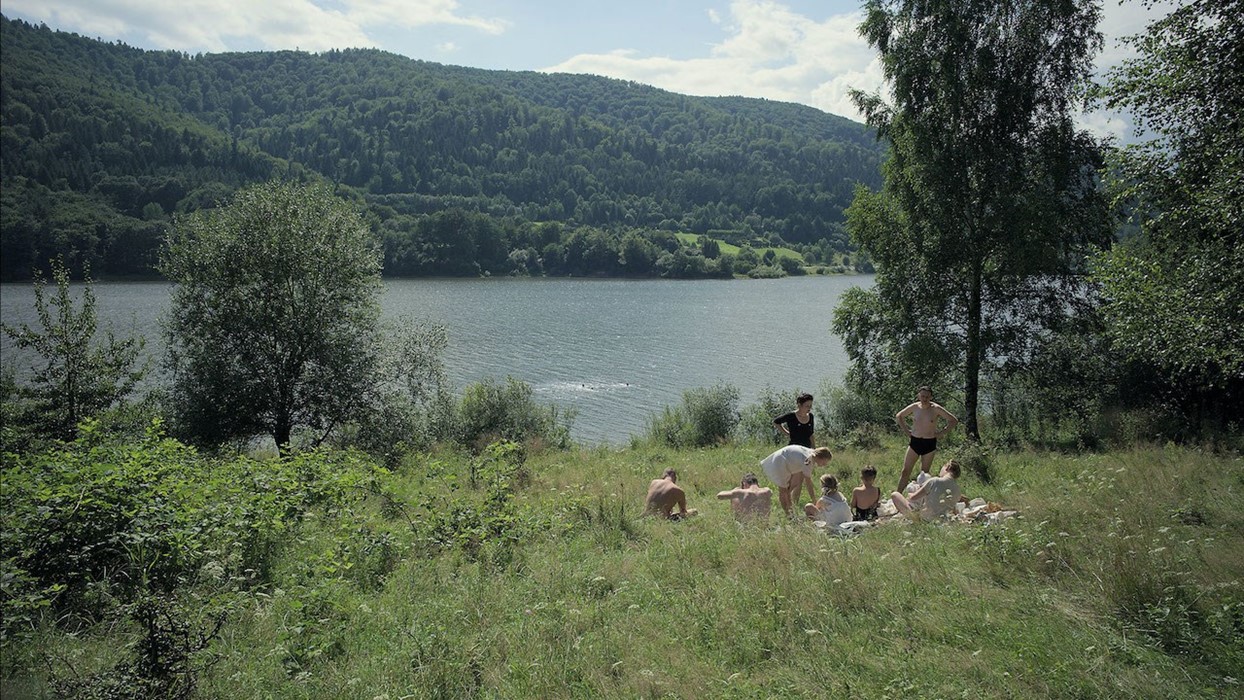
The Zone of Interest
From February 2
Jonathan Glazer’s Oscar-nominated fourth feature takes a novel by the late Martin Amis, guts it of nearly all plot, and confronts us at length with a central, crushing irony: this is the story of a Nazi death camp commandant and his family, doing normal family stuff in their idyllic country home right next door to Auschwitz. It's an audacious, technically brilliant attempt to dramatise the banality of evil, but at times the sleight-of-hand conceit could well prove divisive.
Read AnOther’s of the film here.
